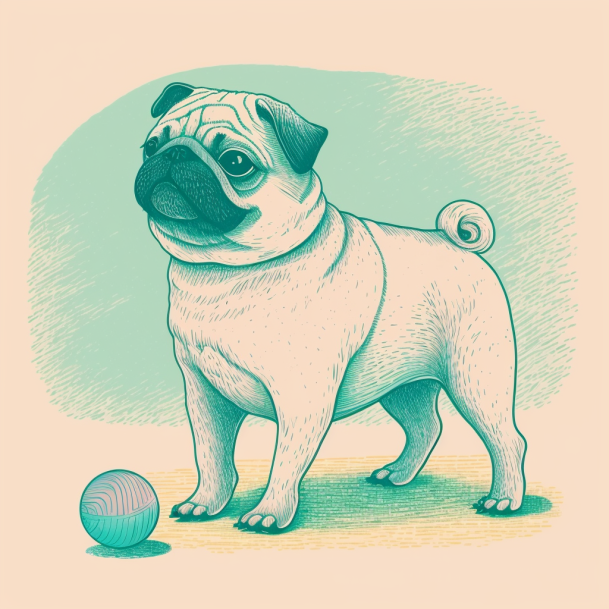Are you aware of the relationship between heath and pet diet? What food you feed your furry friend can have a significant effect on their overall well-being. In this article, we’ll cover everything you need to know about this subject – from the importance of providing them with a balanced diet to common dietary issues in pets – so that everyone is informed.
As a pet parent, you want your furry friend to be healthy and contented. One way of achieving this is by providing them with an appropriate diet. A balanced diet is essential for maintaining your furry friend’s overall well-being; what they eat can affect their weight, energy levels, and even mood!
In this article, we’ll investigate the relationship between heath and pet diet. We’ll cover what a balanced diet entails, how diet affects pet well-being, as well as common dietary issues in pets. Whether you own a cat, dog, or another type of pet – this information is relevant for everyone!
The Benefits of a Balanced Pet Diet
What Is the Importance of Adopting an Equitable Diet for Pets?
Maintaining your pet’s overall health and wellbeing requires providing them with a balanced diet. Just like humans, pets require various nutrients for optimal wellbeing – these may include proteins, carbohydrates, fats, vitamins, and minerals.
What Is a Balanced Diet for Pets?
A balanced diet for pets should consist of high-quality proteins, carbohydrates, and fats. Protein should come from animal sources like meat or fish while carbohydrates can come from vegetables, fruits and grains. Fats should also come from animal-based sources like fish oil or chicken fat.
Check out our post about “The Importance of Dog Dental Care for Your Pet’s Health“
How Does Diet Affect Pet Health?
Diet can have a significant impact on your pet’s health in many ways. Here are some examples:
Diet and Weight Gain
As with humans, diet plays an integral role in managing pet weight. Feeding your pup too much or not providing them with enough exercise can lead to obesity and various health issues such as diabetes, arthritis, and heart disease.

Diet and Energy Levels
Your pet’s diet can have an impact on their energy levels. A diet high in carbohydrates will likely cause spikes followed by crashes, while a diet rich in protein provides sustained energy throughout the day.
Understanding the Relationship Between Diet and Mood
Diet can also have an effect on your pet’s mood. A diet high in carbohydrates and low in protein may lead to mood swings or irritability; conversely, providing your pup with a diet rich in protein will improve his or her attitude and behavior. Check out Just Answer Dog Veterinary. A online chat where you can ask a question and get an answer from a verified expert veterinarian.
Check out our post about “How to Groom Your Pet for Optimal Health“
Common Dietary Issues in Pets
Allergies and Food Sensitivities
Pets may develop allergies and food sensitivities to certain types of food. Common signs that your pet has developed these allergies or sensitivities include vomiting, diarrhea, and skin rashes
Obesity
Obesity is a common nutritional issue among pets. Overfeeding them or providing them with unhealthy snacks and treats can lead to weight gain, placing your pup at greater risk for various health issues.
Dental Health
Dental health is another essential factor for your pet’s overall well-being. Feeding them a diet high in sugar and carbohydrates can lead to tooth decay and gum disease, leading to pain and discomfort for your pup as well as tooth loss if left untreated.
FAQs About Diet and Pet Health
Health and Pet Diet are two aspects that many people struggle with, so it’s important to get the facts straight.
How often Should I Feed My Pet?
Your pet’s nutritional needs vary based on their age, weight, and activity level. Speak with your veterinarian to determine the appropriate amount of food to give your furry friend.
Can I give My Pet Human Food?
Some human foods, such as chocolate, onions and grapes can be hazardous for pets. Consult your veterinarian to determine which human foods are safe for your furry friend to eat. Pet Diet is a lot like human diet. Check out ElleVet Pet CBD in collaboration with the Cornell University College of Veterinary Medicine, ElleVet conducted the first study examining how hemp is metabolized by dogs.
Can my pet become vegetarian?
Although vegetarianism is possible for pets, it is not advised. Pets require certain nutrients that can only be obtained through animal-based sources such as meat and fish, making vegetarianism not ideal.
Conclusion
Diet plays a significant role in maintaining pet diet. Feeding your pup an appropriate, balanced diet suited for their age, weight, and activity level will help ensure their overall well-being. Make sure they get essential nutrients from high-quality proteins, carbohydrates, and fats; avoid overfeeding or providing unhealthy treats; by following these guidelines, you can keep your furry friend healthy and contented for years to come!






